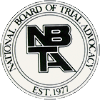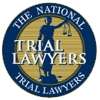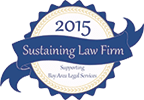News & Resources
Avandia Scandal Continues to Unfold
Avandia is a prescription drug marketed by GlaxoSmithKline (GSK). Released to the U.S. market in 1999, Avandia has been used by millions of Americans to treat Type II diabetes. It works by helping to control blood sugar levels by making the cells of the body more receptive to insulin.
In 2007, though, Dr. Steven Nissen published a meta-analysis of Avandia in The New England Journal of Medicine. His study data was alarming in that it found Avandia patients had a 43% higher risk of heart attack. Glaxo downplayed the report, saying Dr. Nissen's methods were not scientifically conclusive. Nonetheless, Dr. Nissen's report drew attention of Washington. The U.S. Senate Committee on Finance conducted an independent review to determine what Glaxo knew about Avandia before the study was published in the New England Journal of Medicine.
Significant (and shocking) findings by the Senate committee after reviewing hundreds of thousands of pages of internal GSK documents concluded:
"The totality of evidence suggests that GSK was aware of the possible cardiac risks associated with Avandia years before such evidence became public.... Based on this knowledge, GSK had a duty to sufficiently warn patients and the FDA of its concerns in a timely manner. Instead, GSK executives intimidated independent physicians, focused on strategies to minimize findings that Avandia may increase cardiovascular risk, and sought ways to downplay findings that the rival drug ACTOS (pioglitazone) might reduce cardiovascular risks."
Even though the FDA decided not to pull the drug in 2007 when it was up for review, it concluded that Avandia had caused 83,000 heart attacks between 1999 and 2007. Dr. Nissen has sent the New York Times secretly recorded conversations between himself and executives at Glaxo prior to publishing the report. In the meeting, executives promised to begin a thorough analysis of the link between Avandia and heart attack risk "within days" - and three years later, no such report has published in any journal. Dr. Nissen further believes he was trying to being pressured and persuaded not to publish his findings.
Glaxo says it's open to scientific debate, but so far it seems that Glaxo has only (1) downplayed scientific evidence finding increased risks of heart attack; (2) pressured scientists to not publish scientific data which would affect Avandia sales negatively; and (3) stressed, without scientific support, that Avandia is the safest alternative Type II diabetes medication on the market.
As this story continues to unfold in the weeks ahead, it again highlights broader issues of patient safety. A pharmaceutical company, especially one which is publically traded (Glaxo is publicly traded), has one overriding goal: profit. When disclosing safety concerns might materially impact the company's ability to profit, or dramatically decrease revenue from a particular drug, time and time again these companies choose to skew evidence and downplay side effects. They skirt, manipulate, and sometimes downright defy the law, all in the name of profit.
Glaxo is not the first pharmaceutical company to hide evidence or knowingly market dangerous drugs (anyone remember the Vioxx debacle? Or, perhaps HRT or fen-phen??). And until FDA becomes more proactive in regulating these companies and ensuring independent oversight, more unnecessarily dangerous drugs will continue to be marketed in the U.S.




















